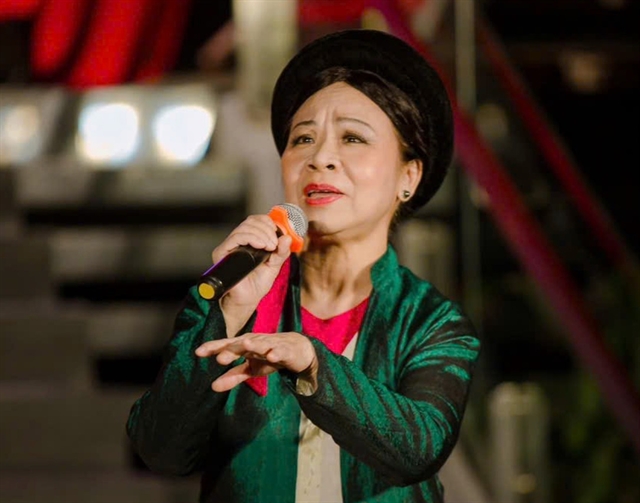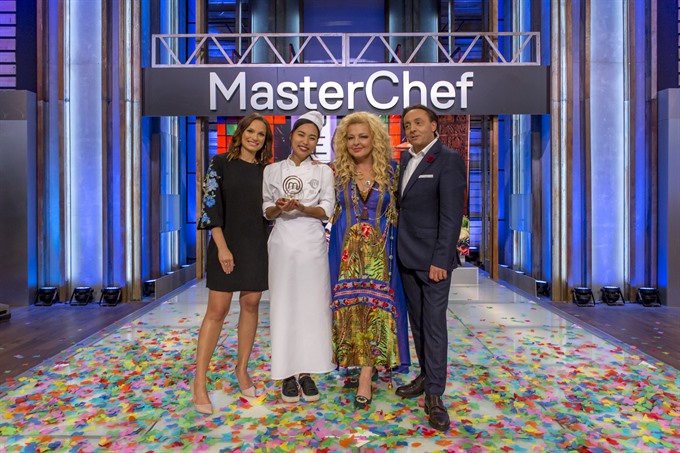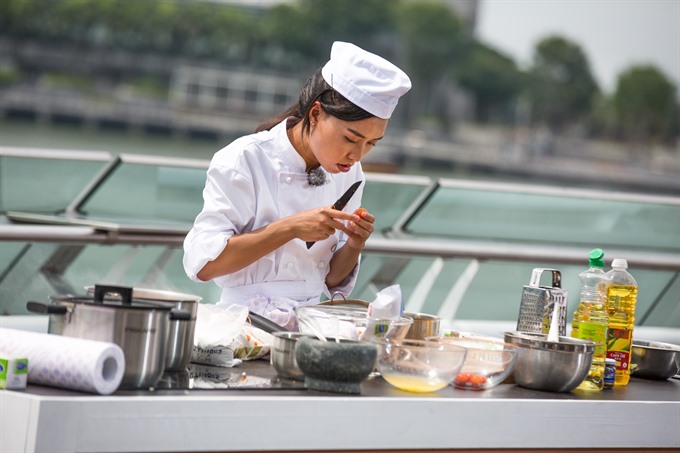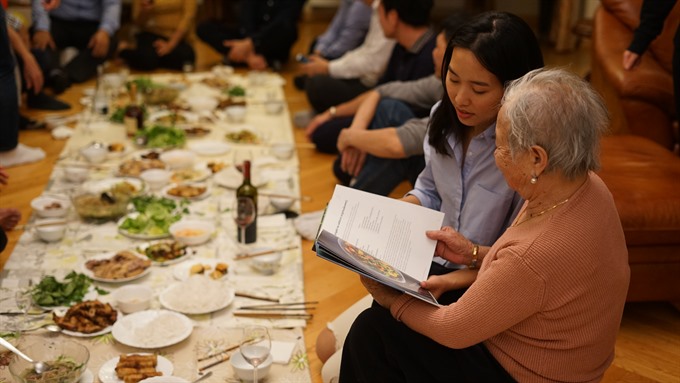 Inner Sanctum
Inner Sanctum

Ola Nguyen, whose Vietnamese name is Nguyễn Hoàng Minh Tâm, became the first Polish citizen of Vietnamese descent to win MasterChef Poland last December.
 |
| Winner: Ola Nguyen (second left) and the jury of MasterChef Poland season seven. - Photos courtesy of Ola Nguyen |
Ola Nguyen, whose Vietnamese name is Nguyễn Hoàng Minh Tâm, became the first Polish citizen of Vietnamese descent to win MasterChef Poland last December. The 21-year-old, who left Việt Nam with her family at the age of seven, said she was inspired by the Vietnamese food she cooks every day at home and wanted to elevate the dishes to a higher level in the eyes of European and Polish food lovers. She talks to Thu Hà about her achievement and ambitions.
Inner Sanctum: How did you feel when you won and how has life changed since then?
I was very surprised. I was proud of myself because I know I really did my best. And a lot has changed since then. I’m selling my MasterChef book. I also conducted some workshops on cooking. I’m more recognisable. I have met a lot of famous people, and have to be more active on social media. What’s more, I think my success has somehow changed the mindset of the immigrant community here. For Asian parents and immigrants in general here, being immigrants makes them try their best for their children to have a stable future. They want their children to study things that they think would guarantee well-paid jobs, for example law or banking… And the kids are not really happy with that. For example, I am not happy that I have to pursue a business degree and I don’t think that it is my passion. Now the community has changed. Parents kind of let their children follow their passion more than just pushing them into well-paid jobs. I think that was important.
Inner Sanctum: What helped you win the contest?
I guess I was lucky that I am still very young. I was competing with people much older than me, who had to leave their work and families for a long time for the competition. Therefore they might be more stressed. For me, I cooked from my heart and because I like it rather than because I want to win the competition. That made me more relaxed and help me think of more creative dishes. Knowing more about Asian cuisine was also a big plus.
 |
| At work: Ola Nguyen during the competition. |
 |
| Traditions: Ola shows her grandmother her recently published MasterChef book at a family gathering. |
Inner Sanctum: How did you fall in love with cooking and who inspired you?
Well, I really like eating. I enrolled in a very competitive and hard high school, so it was very stressful. After school I often watched a lot of videos on eating and cooking on the internet. I kind of ‘fell in love’ with the process of how food is made. My grandma and my mother also made me help in the kitchen from an early age and somehow cooking became a hobby. We cooked ordinary Asian dishes to be eaten with rice for dinners or lunches. Nothing is really sophisticated or special but thanks to that I gained some boldness in the kitchen and decent basics, for example, to take care of a sharp knife or to make the meat tender.
Inner Sanctum: What do you think about Vietnamese cuisine? What are the main differences between that and European cuisine?
Every day, I cook and eat Vietnamese food with my family. I love the fact that it’s very fresh and light. Here in Poland, I guess because of the cold weather, the food is sometimes too oily and heavy. European cuisine in general doesn’t appreciate crunchy and stringy textures as much as Asian. There are a lot of sauces and I feel like every meat I cook should be melting in the mouth. There are many more techniques, whereas in Asia, dishes are really quickly prepared, and there are fewer preserved foods. It doesn’t mean that European cuisine is worse, it is just different, and I enjoy them both.
Inner Sanctum: Do you include Vietnamese cuisine in your MasterChef book?
There is a chapter in the book on traditional Vietnamese food, for example caramelized pork, canh chua (sour fish soup) , dưa chua (pickled vegetables), chả lá lốt (fried minced pork wrapped in wild betal leaves). I want to correct the perception of Polish people about Asian cuisine. Because here in Europe they kind of think that it is all about garlic, ginger and onion and adding soy sauce or fish sauce to every dish, and such things. But actually it’s not. It’s about fresh herbs, fresh products and involves more techniques than people think of. In the final competition at Polish MasterChef, both dishes I cooked were Asian. My ambition was to show more sophisticated Asian cuisine. Here in Poland there aren’t many high-end Vietnamese restaurants. And there is nothing attractive about them. They are just ‘copy and paste’. They only have spring-rolls and phở, and everything is somehow the same. For me it’s very important to show that Asian and Vietnamese cuisine are more than those things.
Inner Sanctum: Tell me about your family. How has your family kept Vietnamese culture alive while living in Poland?
I have a very big family here, I think it’s one of the biggest families in the Vietnamese community in Warsaw. We meet every week at my grandma’s house. We try to keep the tradition of sharing a meal at least once a day. Our big Vietnamese family is really close, and everybody knows everything about each other and it’s really a Vietnamese thing. My family members also have a very traditional way of thinking, too. I also come back to Viet Nam every two to three years. It’s really nice to visit the country as a tourist. We often tour famous places across the country. We eat at local restaurants, not the high-end ones. I really love miến lươn (vermicelli with fried crunchy eel). We can’t bring eel meat to Poland so I can’t eat it here, I really miss it.
Inner Sanctum: What are your plans for the future?
I am in my last year studying finance and accounting, so I want to finish my bachelor’s degree. And then after graduating, I want to work in a professional kitchen first. I am also looking forward to conducting some workshops on cooking. I’m looking to open a Vietnamese restaurant here in a few years but it’s really hard. You need to have so much experience to open a restaurant. — VNS




